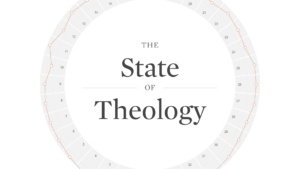In recent weeks there has been a remarkable confluence of articles that, in their own way, are right on time. Let us start chronologically. In November John Frame reviewed James Dolezal’s excellent book, All That Is In God. In the course of . . . Continue reading →
Pietism
Recovering The Importance Of The Public Reading Of Scripture
Bible reading has become a largely private practice—something we do in our own personal “quiet time.” A few verses, or perhaps as much as a chapter, are often read before the sermon on Sunday morning. But when was the last time you . . . Continue reading →
Another Downside Of Pietism: Christ’s Bodily Resurrection Is Marginalized
If it does not care much about the Lord’s Supper (either to observe it or as to who communes) neither does it necessarily have a vital interest in the facts of the history of salvation. This tendency is plainly evident in two great figures in the history of Pietism, Friedrich Schleiermacher (1768–1834) and Walter Rauschenbusch (1861–1918). Both were raised in the Pietist tradition and both abandoned historic Christianity. Continue reading →
AGR: With Chris Gordon On “Still, Small Voices”
It is widely thought among Christians that God is still revealing himself to believers apart from Scripture. It is not at all uncommon for a Christian to say, “I believe in Scripture alone” (sola Scriptura) in one breath and “The Lord told . . . Continue reading →
What Hath Beer To Do With Calvin? Christian Liberty Is Not License
Abounding grace to sinners (Rom 5:20), i.e., God’s free favor to the undeserving, leads to Christian freedom but not to licentiousness (living without norms). Liberty is not libertinism. This doctrine is at the heart of the Reformed doctrine of the Christian life. . . . Continue reading →
Bavinck’s Critique Of Pietism
Like so many other efforts at reforming life in Protestant churches, Pietism and Methodism were right in their opposition to dead orthodoxy. Originally their intention was only to arouse a sleeping Christianity; they wished not to bring about a change in the . . . Continue reading →
More Conference Audio: The Quest For Illegitimate Religious Experience
Here is the fourth installment of the audio from the conference, So You You Say You Want A Reformation? hosted by Bethlehem Bible Church in West Boylston, MA. This is one of the Saturday morning talks, on the QIRE (quest for illegitimate . . . Continue reading →
An Appreciation Of J. I. Packer And A Dissent
On 17 July, 2020 J. I. Packer (b. 1926) went to be with our Lord. Like Carl Trueman I am thankful for Packer. As a young evangelical, Packer and John R. W. Stott saved me from the mindless evangelicalism toward which I . . . Continue reading →
The State Of Evangelical Theology 2020: The Crisis Deepens
For a few years now Ligonier, in conjunction with Lifeway, has been conducting surveys of Americans (and others) to track the state of American Christianity. They want to know, as they write, what “Americans believe about God, salvation, ethics, and the Bible.” . . . Continue reading →
Criticizing Edwards On Religious Affections Does Not Lead To Dead Orthodoxy: There Is Another Way
In the wake of my latest essay, which cautions readers regarding Jonathan Edwards, has come questions about the role of affections and emotion in the Christian life. These questions signal how deep the Pietist tradition (see the resources below) runs in American . . . Continue reading →
“Yeah But We Are The Government”
J. H. Alsted was correct. The doctrine of justification is the article of the standing or falling of the church—the doctrine of the church. Calvin was right. The doctrine of justification is the axis around which the faith orbits. So, it must . . . Continue reading →
Jon Moffit on Pietism and Assurance: Men’s Conference in Monroe, Michigan, March 3–4 2023
On the mountain, Jesus taught his disciples to “seek first the kingdom of God and his righteousness” (Matt 6:33). The overall aim of the Christian life is to pursue God’s kingdom, not our own kingdoms in this world. Turning away from ourselves, . . . Continue reading →
Study While You Pray And Pray While You Study
As an ex-pietist, one of the most vicious laws under which I was placed early on in my Christian life was the “quiet time.” I was taught to carry a “verse pack” and to keep a “quiet time” journal. The younger Christians . . . Continue reading →
The Fork In The Road For The “New Calvinists”
Thanks to Darryl Hart for pointing us to this challenging essay by Dale Coulter, who self identifies as a “Classical Pentecostal” in the holiness tradition.1 He writes on the official blog of the Regent University School of Divinity. He favors the Edwardsean . . . Continue reading →
With The Pactum Podcast On Bad Theology
In this interview Dr Clark sits down with Pat Abendroth of The Pactum podcast to talk about different types of bad theology: pietism, biblicism, antinomianism, neonomianism, and more. Here is the audio from the interview: Here’s the video. RESOURCES Subscribe To The . . . Continue reading →
The Importance of Being More Than Earnest
Doctrine. Theology. For many evangelicals these words are as pleasant as the phrase, “impacted tooth!” That theology is irrelevant to Christian life has essentially become a received dogma. Nevertheless, as much as indifference about Christian truth reigns among evangelicals, to the same . . . Continue reading →













